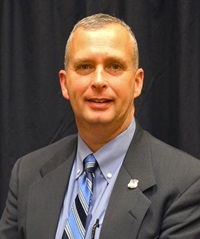
BY REP. TODD CARVER
While the the N.C. General Assembly was on our Easter break last week, this week is shaping up to be very busy. There are a great number of bills trying to make the cross-over deadline in order to be considered further in this session. The deadline for bills to have at least one chamber cleared and still have a chance of becoming a law is May 8. In this year’s session more than 1,000 bills were filed by members of the House and over 700 in the Senate. It is fair to say there will be a great deal of last-minute negotiations taking place.
HB 765
The first bill I want to discuss — and has been getting a great deal of attention — is HB 765, Local Government Development Regulations Omnibus. This bill is being sponsored by two of the chairmen of the House Regulatory Reform Committee, of which I am a member. I say that to forecast that this bill will get some movement. The bill is attempting to do a variety of things which would make it harder for local planning and zoning departments to slow down the development process.
There are two sides to this issue: Citizens many times are telling their locally elected officials to slow growth. Particularly in the Mooresville area, growth needs to be slowed to allow infrastructure to catch up with the needs of residents. The other side to that same issue is that people want more affordable housing. There are only nine counties in North Carolina where the average home price is under $300,000. Said another way, the average home price in 91 counties in N.C. is over 300K. One way to lower home prices is to increase the supply. Basic economics says if we reduce the supply, by restricting development, we will increase the price.
There are some aspects of this biil that I would like to see pass. One example would be for local planning and zoning departments to vote a proposed development up or down within 90 days. Local officials need to look at a complete plan and decide if it meets the criteria or does not meet the criteria for approval within three months. Developers need to present plans which are completed and ready for review when they are submitted.
This bill has some 20 parts to it, so it is far too complex to explain in the context of an article this short. On the one hand, you have the Association of Homebuilders, the N.C. Chamber of Commerce and the NC Realtors Association in support of the bill. In contrast, you have local government and county commission groups who are also very well organized. My hope is a compromise will be worked out that makes home building less complicated, more affordable, but still controlled at the local level. Stay tuned!
HB 636
HB 636, Promoting Wholesome Content for Students was voted on the last day before our Easter recess. This bill intends to create a statewide process for reviewing books in school libraries. The bill calls for the superintendent of each school district to appoint a 10-member board to review challenged books. Five of the members would be from the school system and the other five would be community members. After a decision is rendered, the bill allows any resident of a county to bring a lawsuit against the district for a decision they disagree with.
This bill sets school districts up for a lawsuit regardless of the decision they reach. If they remove a book, someone can bring a suit who wants the book reinstated. If they do not remove a book, someone can bring a suit to disagree with the decision to not remove the book. I spoke with Dr. Jeff James, superintendent of Iredell-Statesville Schools, recently and asked him how many book challenges had been brought forward in the past few years. He told me about 12 books that had been challenged. Three of the books had been pulled from libraries and the other nine had been placed in a special category requiring parental permission to check them out.
I believe both bills require a local solution to work out what is best for the citizens. Local school boards filled with local representation should be able to make the best decisions for their parents and students. Local planning boards filled with local representation should also be able to make the best decisions for their communities.
I can think of very few examples of local issues being managed by Raleigh which get better with the statewide problem-solving model.
Rep. Todd Carver represents the 95th District in the N.C. House.



